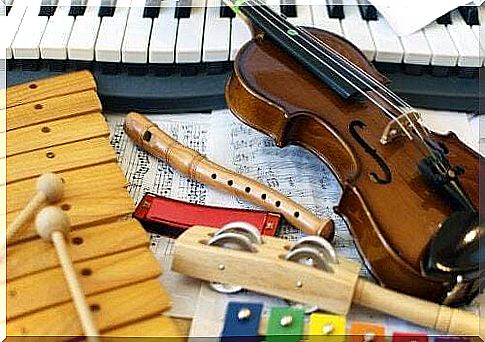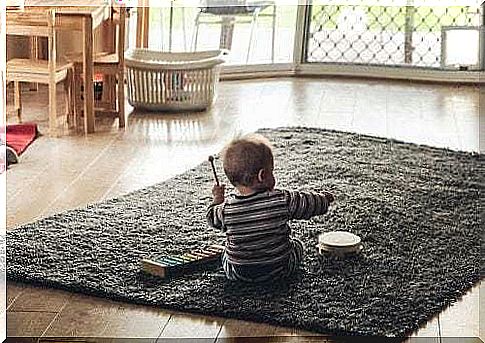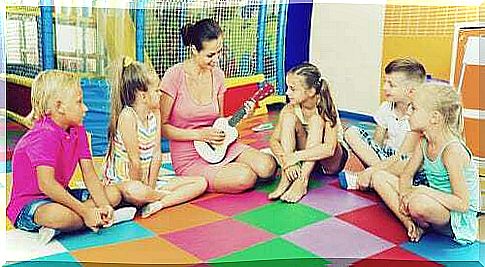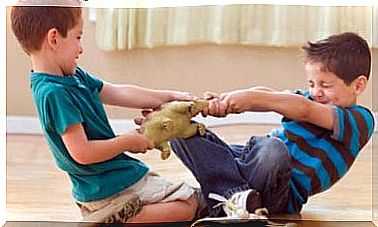The Educational Value Of Musical Expression

The educational value of musical expression is undeniable, as music is culture and is a form of communication. Through music, culture is transmitted from generation to generation and constitutes a language through which feelings and experiences can be expressed.
Therefore, the educational value of musical expression lies in contributing to the full development of individuals, allowing both children and adults to develop their senses and their musical sensitivity and channeling their emotions.
Music education
From the earliest stages of education, the teaching of music education should be oriented to the development of the senses and, above all, to those related to the perception of music, such as hearing, sight and touch. Already in the subsequent educational phases, the objectives can be oriented to achieve a more theoretical learning of musical reading and writing.
Learning the musical language allows the development of skills related to the perception and recognition of rhythms and sounds. In turn, it enables the development of skills such as singing, body movements and the use of musical instruments.

Therefore, in an educational context, music education must teach aspects related to the elements that define musical language, such as sound, silence, rhythm and melody. But he must also work on activities that involve the exercise of the voice and the body, as they are the basic tools of musical expression.
Also, as a form of expression, learning musical language allows people to develop the ability to interpret and communicate a way of seeing and understanding the world.
Hence, music education must be organized in such a way that people can hear, enjoy and express music. Music must be understood as a way of shaping the personality, as a development factor and as a way of managing one’s emotions.
The educational value of musical expression
During childhood, musical expression should be worked out from play and through activities that allow children to enjoy music. These activities should motivate them to pay attention, discover musical elements and improve their hearing. We are talking about activities such as:
- Dancing and dancing to encourage children to move their bodies and perform body gestures. This will contribute to motor development and improve coordination, balance and stability of the body.
- Use and experimentation of musical instruments suitable for their age. These can be percussion (drums, drums, cymbals, etc.).
- Using your body to make sounds such as whistling with your mouth and gait to keep up.
- Recognition of sounds and noises of everyday life.
- Resort to different musical genres, emphasizing those that represent popular culture and folklore.

Importance of musical expression in personal development
Learning the musical language is essential for the personal development of children and adults. Music collaborates with cognitive development and logical thinking and reasoning, with psychomotor development and with affective, social and aesthetic development.
Musical expression helps us feel, live and understand and manage our emotions. This helps improve our emotional intelligence and our relationships with others, thus improving our quality of life. In addition, it develops memory.
Furthermore, through music, we not only communicate and express different moods, but we create them because, on many occasions, music expresses what we cannot say in words.









